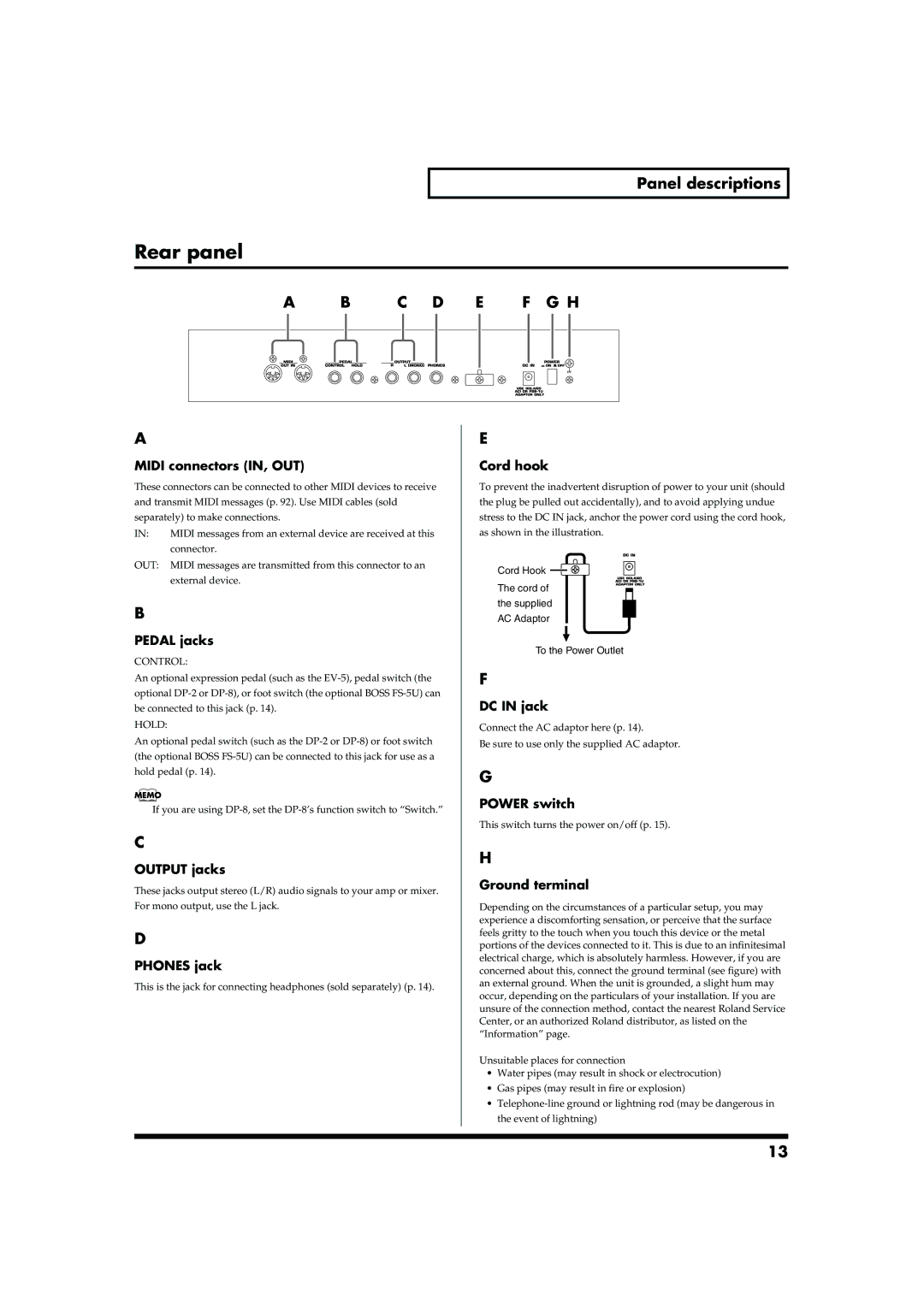
Panel descriptions
Rear panel
A B C D E F G H
A
MIDI connectors (IN, OUT)
These connectors can be connected to other MIDI devices to receive and transmit MIDI messages (p. 92). Use MIDI cables (sold separately) to make connections.
IN: MIDI messages from an external device are received at this connector.
OUT: MIDI messages are transmitted from this connector to an external device.
B
PEDAL jacks
CONTROL:
An optional expression pedal (such as the
HOLD:
An optional pedal switch (such as the
If you are using
C
OUTPUT jacks
These jacks output stereo (L/R) audio signals to your amp or mixer. For mono output, use the L jack.
D
PHONES jack
This is the jack for connecting headphones (sold separately) (p. 14).
E
Cord hook
To prevent the inadvertent disruption of power to your unit (should
the plug be pulled out accidentally), and to avoid applying undue
stress to the DC IN jack, anchor the power cord using the cord hook,
as shown in the illustration.
fig.CordHook.e
Cord Hook ![]()
![]()
The cord of
the supplied AC Adaptor
To the Power Outlet
F
DC IN jack
Connect the AC adaptor here (p. 14).
Be sure to use only the supplied AC adaptor.
G
POWER switch
This switch turns the power on/off (p. 15).
H
Ground terminal
927Depending on the circumstances of a particular setup, you may experience a discomforting sensation, or perceive that the surface feels gritty to the touch when you touch this device or the metal portions of the devices connected to it. This is due to an infinitesimal electrical charge, which is absolutely harmless. However, if you are concerned about this, connect the ground terminal (see figure) with an external ground. When the unit is grounded, a slight hum may occur, depending on the particulars of your installation. If you are unsure of the connection method, contact the nearest Roland Service Center, or an authorized Roland distributor, as listed on the “Information” page.
Unsuitable places for connection
•Water pipes (may result in shock or electrocution)
•Gas pipes (may result in fire or explosion)
•
13
